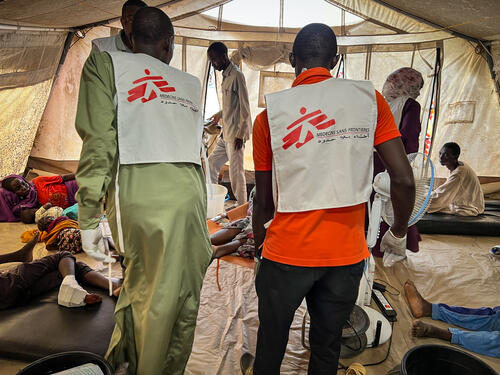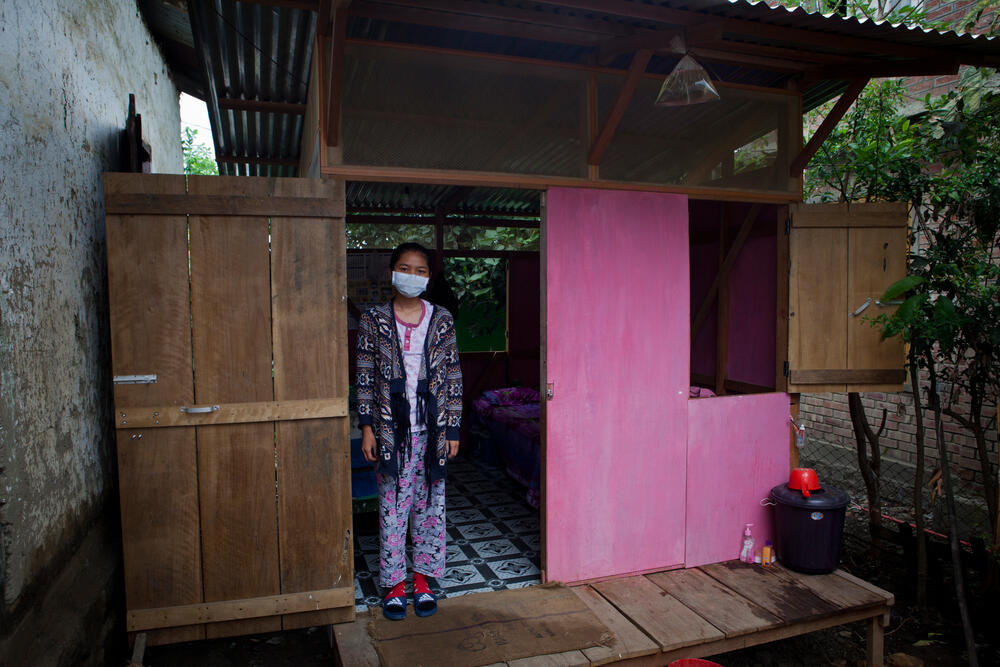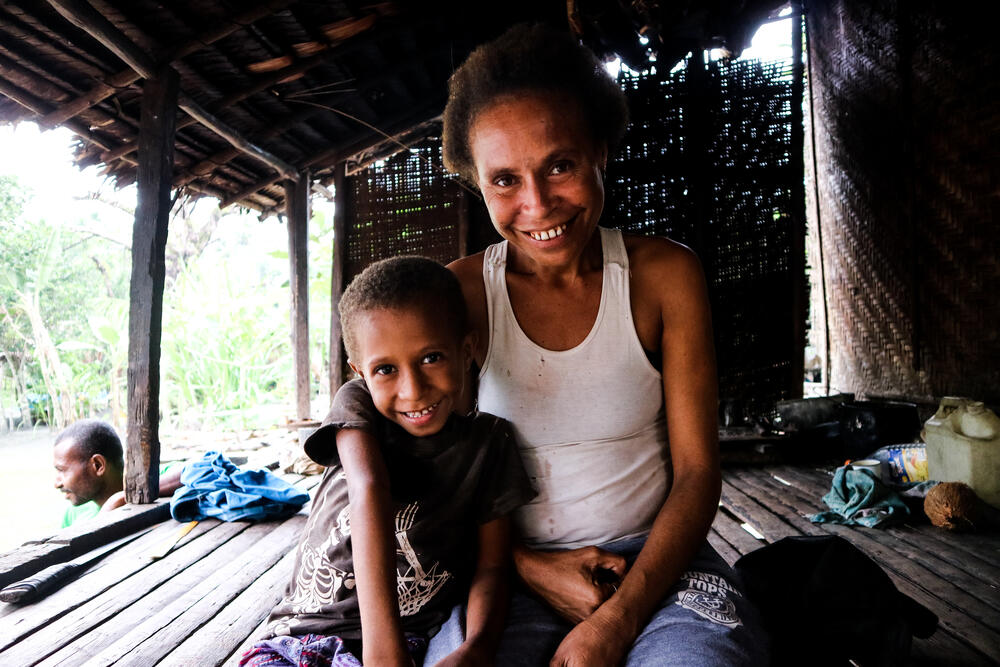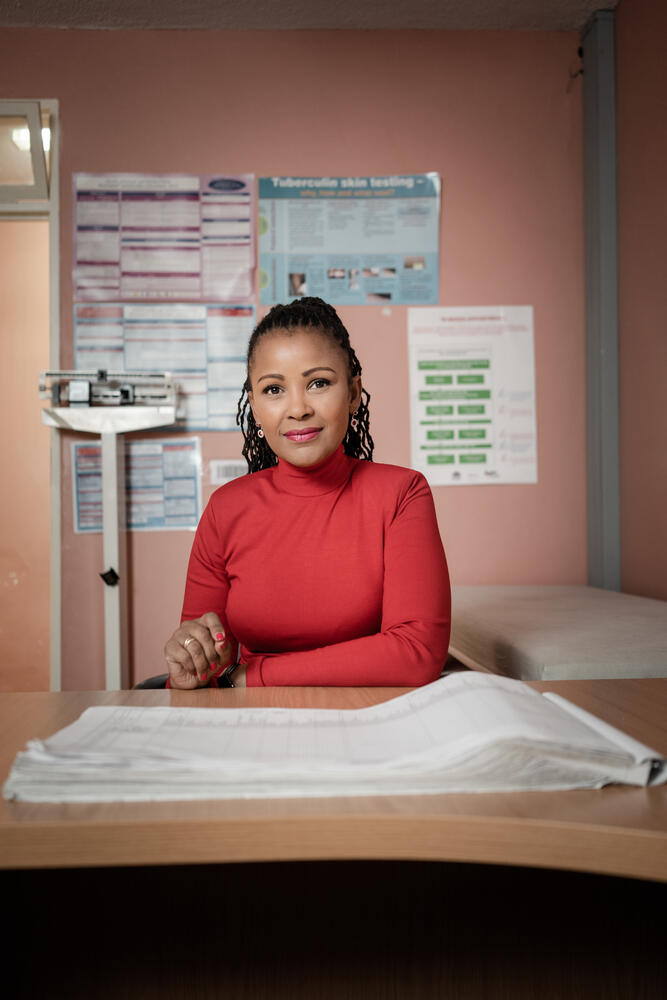World TB Day: Tuberculosis care must continue despite COVID-19
MSF is one of the largest non-governmental providers of TB care in the world
As COVID-19 cases continue to climb and countries such as the UK enforce stricter control measures, MSF is concerned for vulnerable people worldwide.
However, in the fight against coronavirus, we must not neglect the diagnosis and treatment of other infectious and deadly diseases.
Tuberculosis (TB), which is currently the world's leading infectious disease killer, affects nearly 10 million people across the globe.
This World TB Day, we want to shed light on this vulnerable group that may be doubly affected by COVID-19. As the world comes together to tackle the pandemic, special attention will be needed to safeguard the continuity of TB prevention, diagnosis, treatment and care.
An infectious and deadly disease
In 2018, 1.5 million people died of TB.
TB is the leading cause of death among people living with HIV and many countries, such as India and South Africa, have large numbers of people living with both diseases.
Of the nearly 10 million people affected by TB, half a million have drug-resistant forms of the disease for which the treatment is long and toxic.

Our work saves lives
MSF is one of the largest non-governmental providers of TB care in the world. In 2018, in more than 20 countries across the globe, our teams started 16,500 people on treatment for TB and 2,840 people for DR-TB.
Together with partners, we are also running two clinical trials for DR-TB – TB PRACTECAL and endTB – with the aim of finding shorter and more effective treatments, with fewer side effects.
TB and COVID-19 compared
As with TB, COVID-19 typically affects the lungs and people who contract it may show similar symptoms to TB, such as coughing and fever.
It’s likely that people with lung damage, such as TB patients or those with weak immune systems due to HIV, may suffer from more severe forms of COVID-19 if infected.
TB care must continue
This already concerning situation will become even more grave if diagnosis and treatment for HIV or TB is interrupted.
MSF supports the World Health Organization’s (WHO) advice to countries to maintain continuity of essential services – prevention, diagnosis, treatment and care – for people living with TB and drug-resistant TB (DR-TB) during the COVID-19 pandemic.
Health care systems, particularly those in low resource settings, will be put under considerable pressure by COVID-19.
We know from previous epidemics that reduced access to care, medicines and diagnostics for people with life-threatening conditions, such as TB, can lead to an increase of deaths from these underlying conditions.
In Guinea, one of the countries at the epicentre of the 2014-2015 Ebola epidemic, reduced health services led to a 53 percent decrease in the diagnosis of TB, while the mortality rate doubled from direct and indirect impacts on TB health services.
Innovative changes needed
Concurrent to the global response needed to tackle COVID-19, health authorities, implementing partners and international funders must make every effort to maintain essential services while reducing the risks for vulnerable populations.
To reduce the risk of COVID-19 infection amongst TB and HIV patients, we will need to see innovative changes to the ways in which healthcare is provided.
This includes decentralised and outpatient treatment, access to treatment through community and "physically distant" models of care and follow up of patients through telemedicine and the use of web apps.
The implementation of all oral treatments for DR-TB as recommended by WHO is now an imperative that cannot be delayed, as is the implementation of community-supported treatment to reduce contact with health structures.
Given the high risk of severe disease in TB patients, efforts to minimise the impact of COVID-19 should also include the provision of protective measures for staff and those in contact with TB patients, and the testing and isolation of confirmed or suspected COVID cases to avoid transmission to others.
A call for solidarity to protect patients
Global solidarity is essential to tackling a global pandemic.
Avoiding excessive stockpiling and export bans will ensure essential medicines and supplies, including personal protective equipment, can reach all countries in need.
Such collaboration and sharing will stop people with TB being put at additional risk due to a lack of necessary drugs or the ability to test.
Without such an approach, the pressure on countries with already fragile health systems will be doubled.
As countries struggle to deal with COVID-19 pandemic, we must take all necessary steps to ensure that the impact of this pandemic does not create a second tragedy for vulnerable communities worldwide, including people with TB and HIV.



